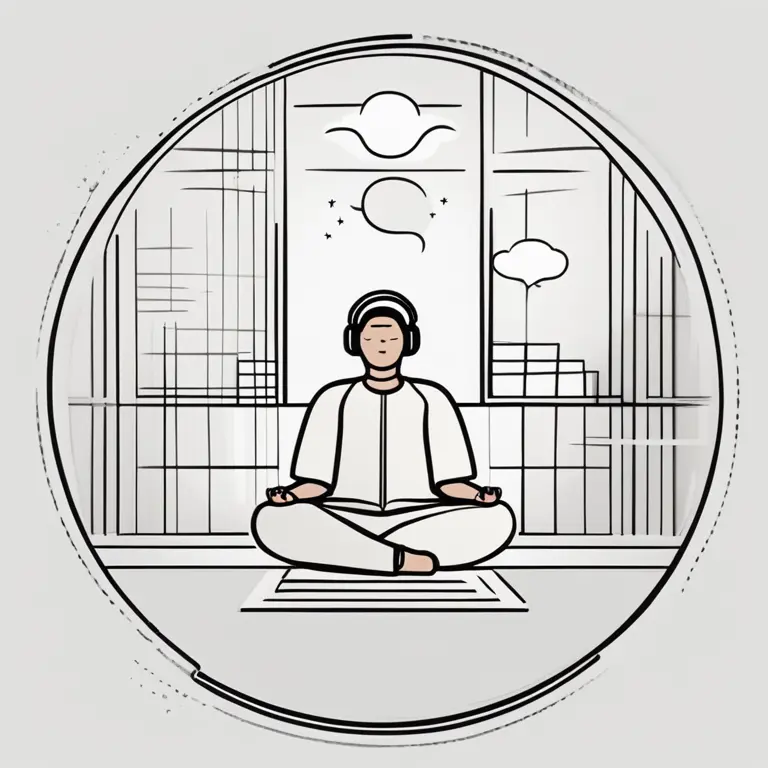
Why Meditation Can Induce Sleepiness?
Discover the reasons behind the drowsiness often experienced during meditation and learn how to fine-tune your practice for enhanced alertness and spiritual growth.
article by Hina Kurosawa
Meditation: A Journey Inwards
Meditation is an age-old practice that serves as a voyage to the inner self, often associated with relaxation and increased mindfulness. However, for many practitioners, this journey comes with an unexpected companion: sleepiness. As we embark on the tranquil paths of meditative practices, our bodies interpret the signals of slowed breathing and reduced activity as preparation for sleep. This physiological response is rooted in the parasympathetic nervous system, igniting a state of rest which can often lead to unintended drowsiness, especially when the practice is incorporated into our daily routines.

Understanding the Relaxation Response
The dive into relaxation that accompanies meditation is known as the 'relaxation response', a term coined by Dr. Herbert Benson in the early 1970s. Activating this response can lead to a decrease in heart rate, blood pressure, and muscle tension, all of which are beneficial but can also mirror the on-set of sleep. In the progressive society of 2024, with its amplified stress levels and constant stimulation, our exhausted bodies may seize the opportunity presented by meditation to drift toward sleep, sometimes hijacking our intent to remain alert and focused during the practice.

Timing and Environmental Factors
The timing of your meditation can greatly influence your tendency to feel sleepy. Meditation during the early morning or right before bed may predispose you to sleepiness due to natural circadian rhythms. Additionally, the environment in which you meditate plays a crucial role. A room that's too warm or a seating position that's too comfortable can easily turn a session of mindfulness into a nap. Adapting to the sleepy temptation might require tweaking these external factors.

Posture and Physical Readiness
Your posture during meditation significantly impacts your alertness. Slumped or lying positions may signal your body that it's time to rest. Maintaining an upright, seated position with a straight spine encourages a state of wakefulness. In 2024, with the accelerated growth in remote work and sedentary lifestyles, maintaining physical readiness for an alert meditation session becomes more challenging. Implementing short bouts of physical activity beforehand can help in maintaining an energetic state, conducive to an attentive meditation practice.

Breathing Techniques and Focus
The way you breathe during meditation can affect your level of sleepiness. Deep, slow breathing is a fantastic tool for relaxation, but without the right balance, it can lead to lower brain oxygen levels, causing somnolence. By contrast, practices incorporating more active breathwork, such as pranayama in yoga traditions, may help sustain alertness. Additionally, maintaining focus during meditation, possibly through guided sessions with aurally stimulating elements or concentration on a specific object or thought, can help fend off drowsiness.
Sleep Quality and Meditation Correlation
The quality of sleep you're getting each night could be contributing to your sleepiness during meditation. Inadequate sleep can make it hard to stay awake in the stillness of meditation. Addressing basal sleep quality is essential as 2024 continues to bring light to the importance of restorative sleep and its impact on overall health and cognitive function. Ensuring that you are well-rested will bolster your ability to remain conscious and engaged during your meditation sessions.
Adjusting Your Practice
For those who find meditation leading to sleepiness, small adjustments can make a big difference. Experimenting with different styles of meditation, such as movement-based practices like walking meditation or qigong, could provide an alternative that keeps sleep at bay. By modifying the practice to suit individual needs and preferences, and taking into account the evolution of meditative techniques up till 2024, practitioners can strike a balance between deep relaxation and wakeful insight, making their meditation sessions as productive and enriching as possible.
Published: 1/14/2024
Modified: 1/15/2024
More predictions
Come back here soon to learn more about yourself and your future


Healing Through Mindfulness: Meditation & Trauma Recovery
Mindfulness meditation offers a powerful tool for individuals seeking solace and healing from traumatic experiences. Discover how this practice can aid in the journey towards inner peace.


Mindfulness Meditation: A Handbook for High Schoolers
Discover how mindfulness meditation can benefit high school students, enhancing focus, reducing stress, and promoting overall well-being.


Mindfulness Meditation Basics for First Graders
Introducing foundational mindfulness meditation practices to instill calm and focus in first-grade students.